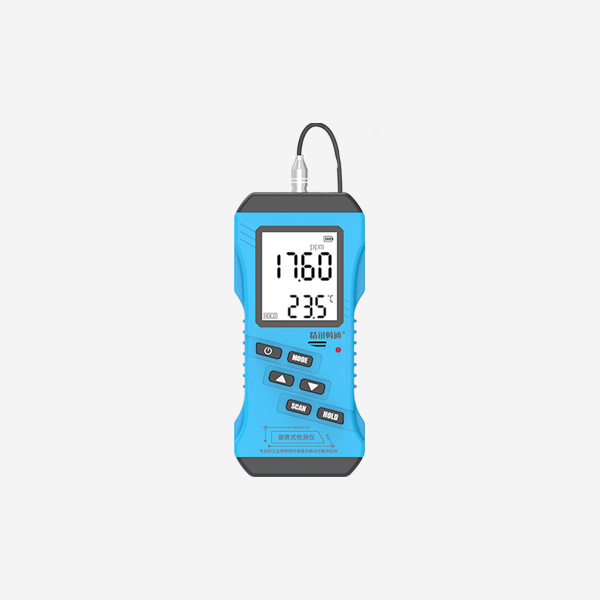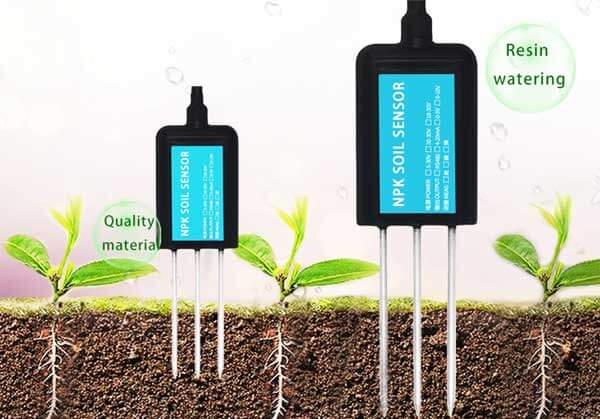A soil sensor, also known as a soil moisture sensor or soil humidity sensor, is a device used to measure the moisture content and other important parameters of the soil. It is a crucial tool for farmers, gardeners, and researchers to monitor and manage soil conditions. However, with so many options available in the market, it can be challenging to determine which soil sensor is of good quality. In this article, we will explore several factors to consider when choosing a high-quality soil sensor.

Accuracy:
The accuracy of a soil sensor is of utmost importance. It should provide precise measurements of soil moisture, temperature, and other parameters. A high-quality sensor will have a calibration feature that ensures accurate readings. It is advisable to choose a sensor that has been tested and verified for accuracy by reputable institutions or organizations. Look for sensors that have a high degree of precision and a low margin of error.
Durability:
A good soil sensor should be able to withstand harsh environmental conditions. It should be made of sturdy materials that can resist damage from moisture, heat, and physical impact. Look for sensors that have a high IP rating, indicating their resistance to dust and water. Additionally, a sensor with a strong casing or coating will be more durable and less prone to damage.
Range and Depth:
Different plants and crops have varying root depths, so it is essential to choose a soil sensor that can measure the moisture content at the desired depth. Some sensors come with interchangeable probes or extension tubes, allowing users to customize the depth of measurement. Additionally, a sensor with a wide range of measurement values will provide more flexibility in monitoring different soil conditions. Consider the specific requirements of your plants or research to choose a sensor with an appropriate depth range.
Battery Life:
A soil sensor that requires frequent battery replacements can be inconvenient and costly. Look for sensors that have a long battery life, allowing for extended monitoring without the need for frequent replacements. Some high-quality soil sensors even have solar panels or other energy-saving features to prolong battery life. Consider the power consumption of the sensor and choose one that aligns with your monitoring needs.
Data Logging and Connectivity:
The ability to log and store data is essential for tracking soil conditions over time. Look for sensors that have built-in data logging capabilities or can sync with a smartphone or computer for easy data management. Some advanced sensors even offer wireless connectivity, allowing users to access real-time data remotely. Consider the data storage capacity, data transfer options, and compatibility with your existing data management systems.
User-Friendly Interface:
A good-quality soil sensor should be easy to use and understand. It should have a clear and intuitive interface that provides straightforward instructions for setup and operation. Look for sensors with user-friendly displays or apps that allow easy interpretation of data. Consider the ease of installation, calibration, and operation when choosing a soil sensor.
Price and Warranty:
While price should not be the sole determining factor, it is essential to consider the value for money when purchasing a soil sensor. Compare the features, quality, and reputation of different sensors to ensure you are getting the best product within your budget. Additionally, check for warranty or after-sales support offered by the manufacturer to ensure peace of mind and assistance in case of any issues with the sensor. Consider the long-term benefits and return on investment when evaluating the price of a soil sensor.

Conclusion:
Choosing a high-quality soil sensor is vital for accurate and efficient soil monitoring. By considering factors such as accuracy, durability, range and depth, battery life, data logging and connectivity, user-friendly interface, price, and warranty, you can make an informed decision and select the best soil sensor for your specific needs. Remember to do thorough research, read product reviews, and seek expert advice if necessary. A good-quality soil sensor will undoubtedly help you optimize your farming or gardening practices and achieve better results.